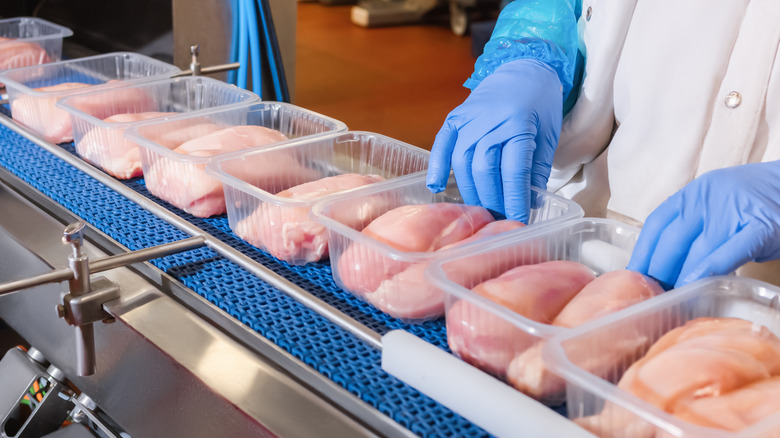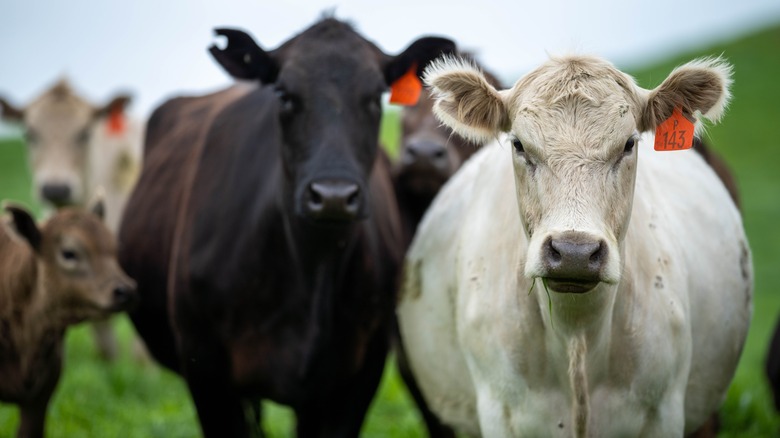US Meat Industry Report Outlines New Sustainability Goals
As much as we all wish it were not the case, meat has a real sustainability problem. According to Nature, global temperatures are predicted to rise anywhere between two and four degrees Celsius by the end of the century, depending on the level of climate action taken, and the meat industry is a major contributor to greenhouse gas emissions. The Guardian says our worldwide food production makes up more than 35% of emissions, with meat accounting for almost 60% of that total. Those gasses come from a variety of sources, including the clearing of forests for grazing land and cropland to feed animals.
Notably, the biggest culprit in all this is probably your burger. As Vox points out, methane emissions from cows alone account for 9% of global emissions. While chicken and pork production generates fewer greenhouse gasses than beef, they still far outstrip plant-based meat alternatives and cause other environmental damage through massive water and land use. To put it succinctly, if we want a future where we can keep eating some meat, and it's safe to say most of us still do, we need to find a way to make meat production more sustainable. That is something it seems like the North American Meat Institute agrees with in its first-ever report on the meat industry's environmental impact.
U.S. meat industry is encouraging climate accountability for meat producers
The Meat Institute is a major force in U.S. food production, with membership from companies that account for over 95% of American meat production (via PR Newswire). Its new report includes a number of metrics over the next decade to bring its members in line with climate goals. The organizations also aim to improve food safety and health issues.
Interestingly, the biggest target for the industry is a two-pronged goal. The first part of the goal is to have every major manufacturer of beef, chicken, and pork reporting emissions data. This will allow all companies that rely on the business to understand the precise impact their products have on the environment.
The second part of the goal is to develop a plan to meet the standards of the Paris Climate Agreement by 2030. Potential methods to reduce emissions are pretty comprehensive and include using renewable energy, lowering food waste, and establishing land-use programs that minimize environmental impacts.
This program by the Meat Institute joins other recent efforts as meat and dairy producers around the world try to shed the image of environmental destruction increasingly associated with the industry. Food Dive reports that Brazilian beef producer JBS has committed to net-zero carbon emissions by 2040, although they have also been linked to suppliers performing illegal deforestation.
U.S. giants like Cargill and Tyson also have plans with the former targeting a 30% emission reduction by 2030, and Tyson is targeting net-zero emissions by 2050. This is all well and good, but right now just promises, so let's hope these producers turn these plans into action, so we can one day get back to enjoying the occasional guilt-free steak.

